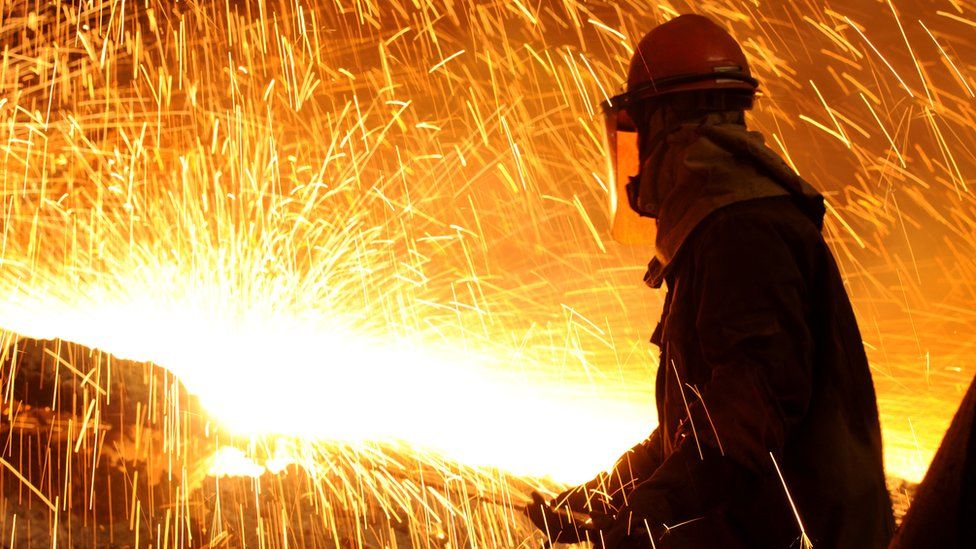ARTICLE AD BOX
 Image source, Getty Images
Image source, Getty Images
Tariffs on steel imports that were due to expire will be retained for a further two years, the government said.
International Trade Secretary Anne Marie Trevelyan said she was extending tariffs because of "global disruptions" to energy markets and supply chains.
Prime Minster Boris Johnson has said the move will protect British steel makers which are under increasing pressure from soaring energy prices.
But there were concerns such a decision could breach international law.
Ms Trevelyan said the decision "departs from our international legal obligations" of a World Trade Organization agreement.
"However, from time to time, issues may arise where the national interest requires action to be taken," she added.
The limits on steel imports were first introduced by the European Union in 2018 in response to tariffs imposed by the Trump administration. The controls were mirrored by the UK after Brexit.
The restrictions, which add a tax to steel imports once a certain quota has been reached, are known as "steel safeguards" because they are designed to protect the domestic market from surges of cheap steel from overseas.
Speaking at the G7 summit in Germany at the weekend, Prime Minister Boris Johnson said keeping the import controls on foreign steel would protect British producers which are already under pressure from rising energy prices.
"We need British steel to be provided with much cheaper energy," Mr Johnson said.
The controls are currently in place for 15 categories of steel. While controls protecting 10 of those categories have already been extended to 2024, import limits on five categories were set to expire on 30 June, before the government extended them for two years.
Ms Trevelyan said maintaining tariffs would help defend a strategic industry and that British steel producers could face "serious injury" were the measures not maintained.

 2 years ago
85
2 years ago
85








 English (US)
English (US)